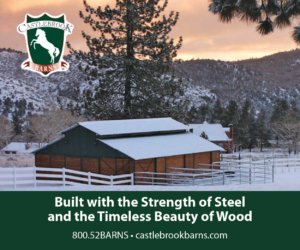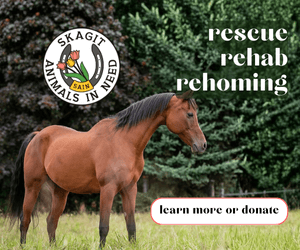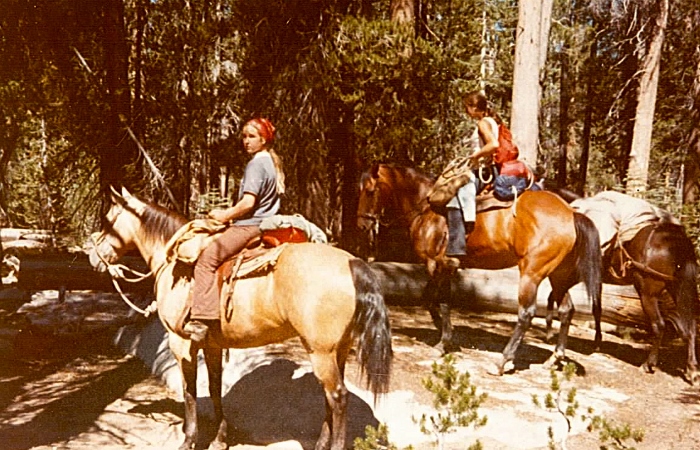by Kim Roe
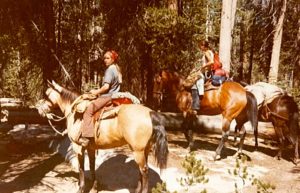
Throughout my high school years, I worked in the Sierra mountains at a pack station. I wasn’t paid much, but I had room and board for myself and my horse. We packed tourists into the back country, took them on fishing trips, and conducted day rides to meadows and lakes. I still think of it as the best job I ever had – riding all day, every day, in beautiful country.
My boss, Floyd, was born in 1919. He grew up on horseback and horses were essential for his livelihood. He raised cattle and horses on a large ranch in the Sierra foothills. Floyd taught me many things: always look people in the eye, never turn your back on a mule, always carry a knife, and how to cast a fly-rod so that I could land the hook and fly in a bucket 20 feet away. He worked his help hard, and he taught us to always conduct our business ethically and cheerfully.
But the lesson I remember the most is this: the livestock always come first. You feed them before you eat breakfast or dinner; if you are thirsty, give your horse a drink, and check that they are comfortable and resting well before going to bed yourself. This lesson is ingrained in me and I’ve followed Floyd’s example throughout my life.
It feels right — caring well for horses. They are dependent on us, so we owe them the best care we can offer. The trick is knowing what constitutes great care. Horses can seem so fragile that we mistake good horse care for what would bring humans comfort.
I’ve struggled with the difficulties of horse ownership in the Pacific Northwest. Our wet winters (and springs and falls) mean our horses must always have access to shelter, but locking them in stalls is detrimental to their health. I see trends toward keeping horses in a more natural state with constant access to turn-out and other horses. I’m using my own stalls less and less, have quit body-clipping my horses, and I keep blanketing to a minimum. Following Floyd’s example, I now pull most everyone’s shoes in the winter too.
This month’s theme is Equine Wellness, and we have some wonderful articles on the subject. Also, enjoy our cover story about The Mane Event happening October 21-23 in Chilliwack, B.C. As usual, they have a fantastic line-up. I hope to see you there!
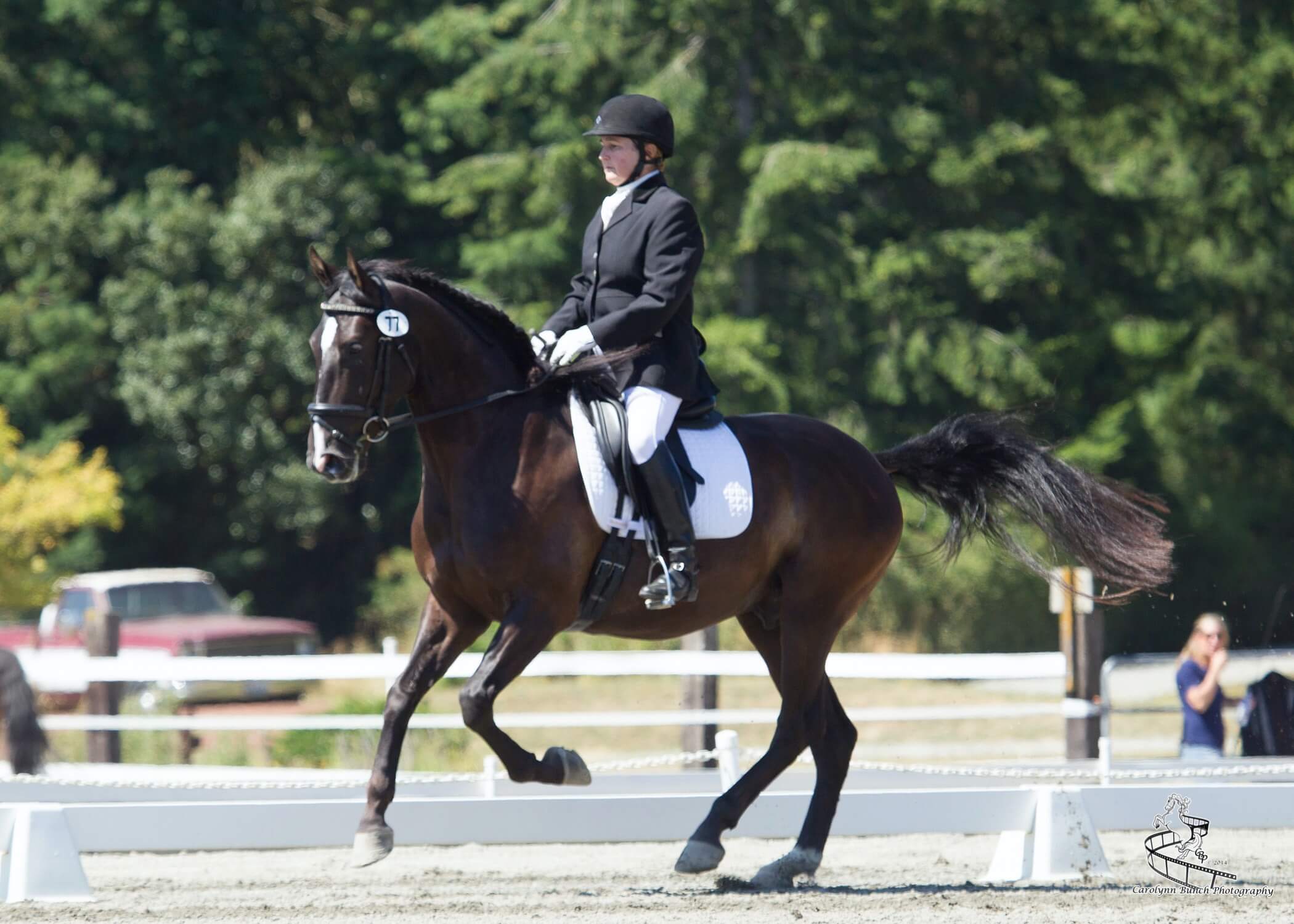
Kim Roe grew up riding on the family ranch and competed in Western rail classes, trail horse, reining, working cow, and hunter/jumper. She trained her first horse for money at 12 years old, starting a pony for a neighbor.
Kim has been a professional dressage instructor in Washington state for over 30 years, training hundreds of horses and students through the levels. In recent years Kim has become involved in Working Equitation and is a small ‘r’ Working Equitation judge with WE United.
Kim is the editor of the Northwest Horse Source Magazine, and also a writer, photographer, and poet. She owns and manages Blue Gate Farm in Deming, Washington where she continues to be passionate about helping horses and riders in many disciplines.


